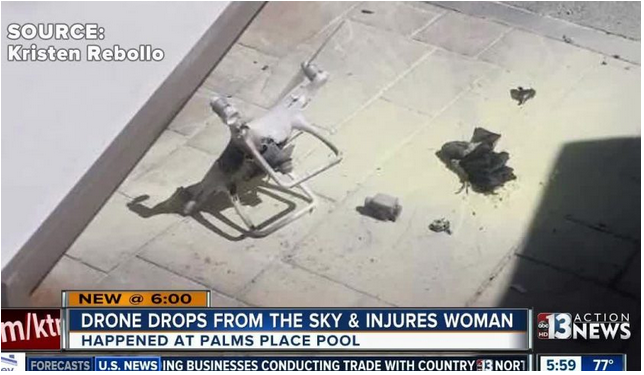Drone Battle: Local Government vs. Federal

A pair of news items that came out at the end of last month highlight the inadequacy of current regulations for safeguarding the public from careless operators of recreational drones.
As reported by UAV Expert News, a guest at the Palms Place Resort in Las Vegas lost control of their recreational drone which subsequently hit another guest who was resting by the pool. The drone caused an injury sufficiently serious that the guest had to be treated at a local hospital. Reports also indicate the drone burst into flames after the crash.
With this kind of irresponsible behavior in mind, is it any wonder that the city of Newton, Massachusetts (just outside Boston), like other municipalities, attempted to enact some controls by passing an ordinance banning drones flights in certain circumstances? According to an article by John Goglia at Forbes, the ordinance “sought to ban unmanned aircraft flights below 400 feet, to ban flights over private and public property without the landowner’s permission, and to require local registration of drones.” However, there’s one major problem with Newton’s ordinance. It’s completely invalid. The Forbes article goes on to describe how a Newton drone operator (who is also a physician and inventor) won a court challenge to the ordinance. The decision of the federal judge was pretty simple: only the federal government can regulate the airspace. Sorry, Newton, it’s not your jurisdiction.
This, of course, leaves local governments with little choice but to lobby Congress to put pressure on the FAA to enact tougher regulations and enforcement policies. As I have described in previous posts, the blanket exemption given to hobbyists must be re-examined for the public’s safety as well as for the enhancement of the future drone industry.
